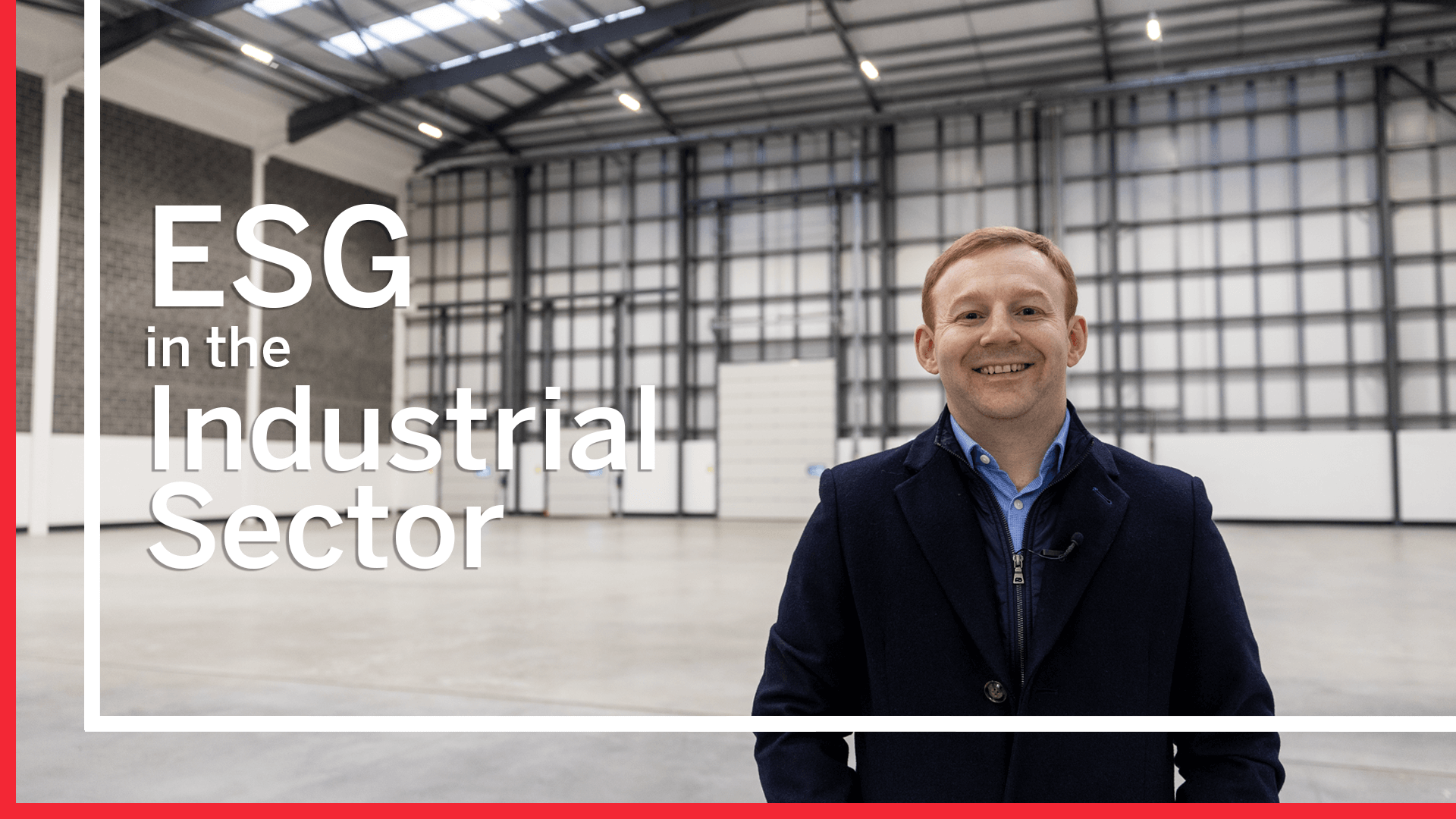Driving Sustainability: ESG’s Transformative Role in Industrial & Logistics Real Estate
10th December 2024

Article by James Kearney, Divisional Director, Industrial at Lisney. (jkearney@lisney.com | +353 1 638 2700 )
ESG considerations are becoming increasingly important in warehousing and logistics real estate. The growing emphasis on sustainability, climate resilience, and ethical business practices has made ESG a key focus for developers, investors and occupiers within the sector.
Warehouses are major consumers of energy, often operating 24/7. There’s a growing focus on both sustainable energy-efficient buildings and using sustainable materials. On new build stock, developers are targeting LEED Gold accreditation and BER ratings of A2 whilst ensuring a high-quality landscaped environment. Glue laminated timber frames offer 27% less embodied carbon than steel and is being favoured by certain developers such as IPUT & Newpark. In addition, other design features typically include LED lighting systems, rainwater harvesting systems, roof mounted solar panels and building design allowing for enhanced natural lighting in both the office and warehouse accommodation in a building.
The social element of ESG will continually attract greater capital investment in the sector in the years ahead. In a tight labour market where it can be more difficult to attract staff to non-CBD locations, this investment may include sport facilities, cycle paths and improved food and beverage offerings, all of which will increase the attractiveness of business parks as a place of work.
Investors such as M7 Real Estate and Palm Capital, which have extensive industrial portfolios, are investing significant capital into upgrading and retrofitting older stock. Whilst small and medium Irish occupiers may not have published ESG targets, they are increasingly focussed on the cost savings that come by occupying refurbished buildings with improved BER ratings.
Institutional investors, pension funds, and other capital providers are increasingly prioritizing ESG-compliant assets. This is partly due to regulatory pressures being driven by the EU, but also because there’s a growing recognition that sustainable and socially responsible practices are likely to yield better long-term returns.
At Lisney we provide advice to a range of clients on the retrofitting options available for second-hand buildings. Not only do these have occupational benefits for the owners or tenants, in terms of utility cost savings, but with the steep upward trajectory of industrial rents over the last number of years, better quality building have benefited the most and there is a rental premium to be had for units with improved BER ratings. If you want assistance with understanding what options might be open to you, please get in touch.
